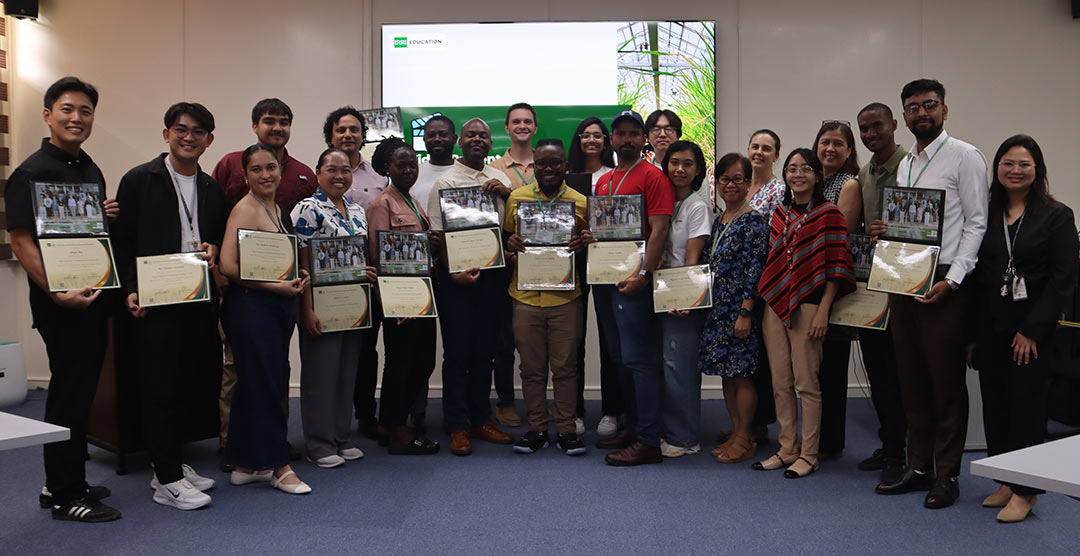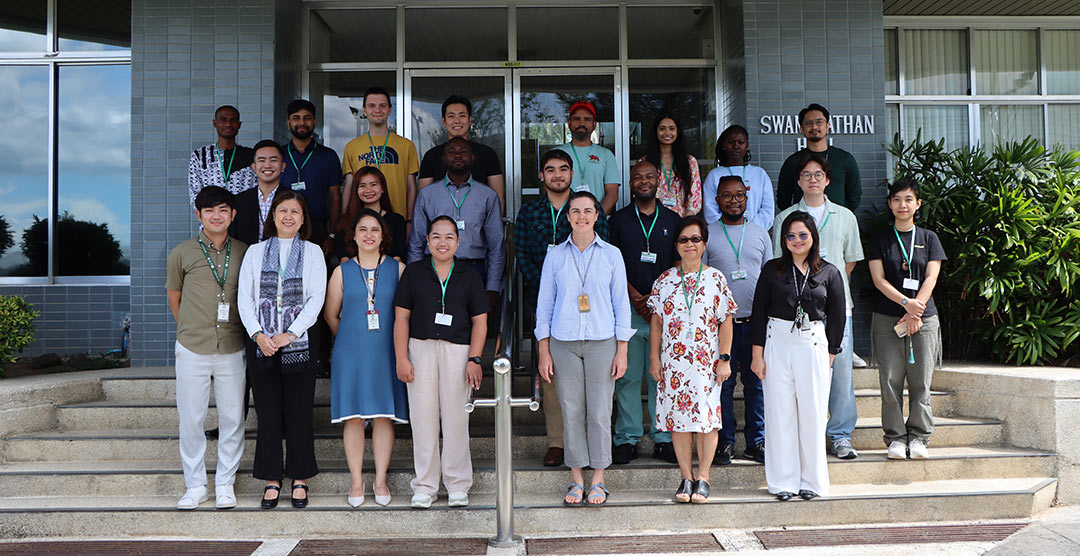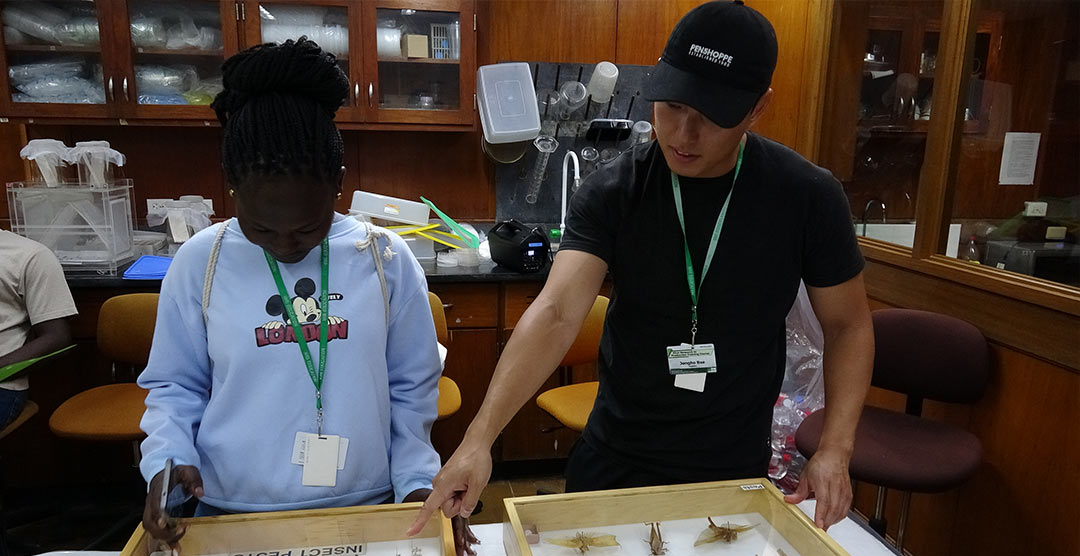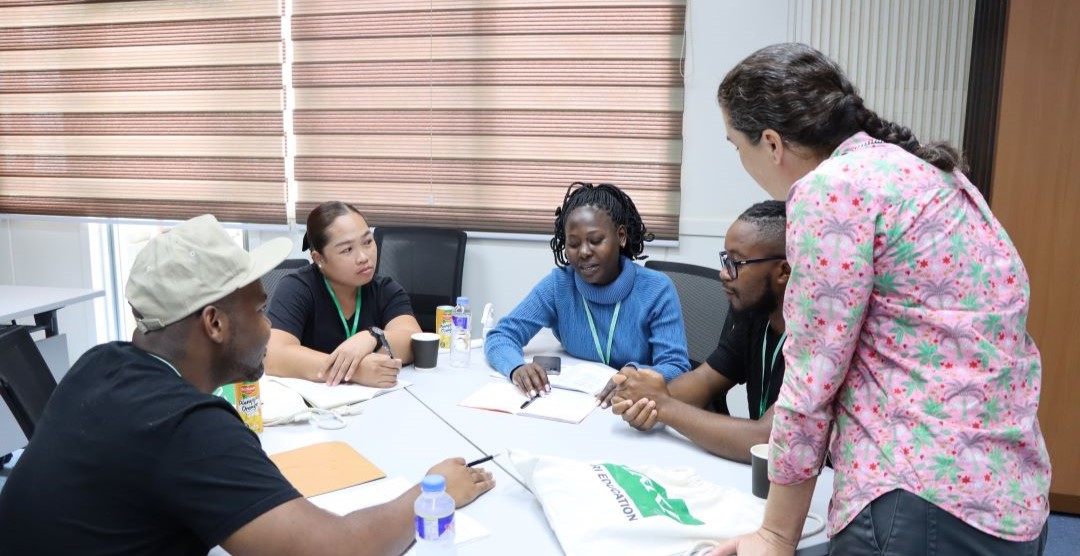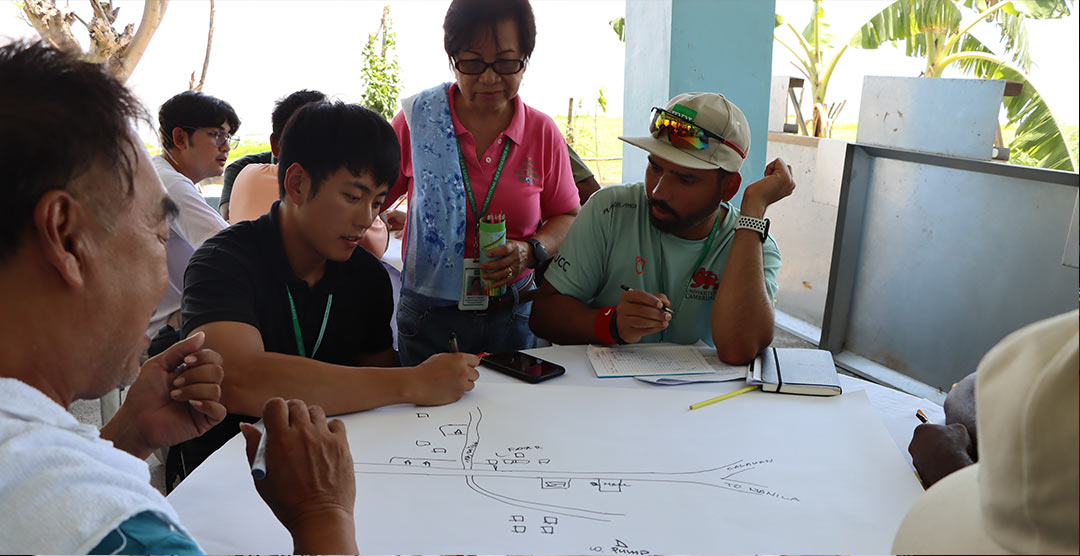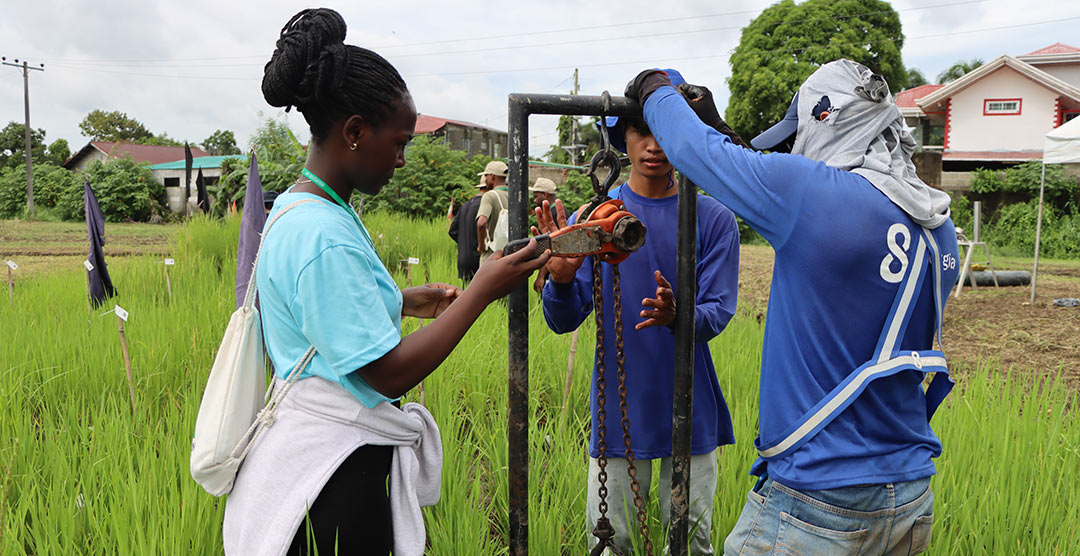The Rice: Research to Production (RR2P) course returned in 2025 for its 18th run, reaffirming its commitment to immersive, hands-on learning that bridges the gap between science and practice. This year’s edition brought together a diverse cohort to study rice research and production at IRRI’s Headquarters. For three weeks, participants explored the entire rice value chain through lectures, laboratory and field activities, and community engagement.
Among the participants were Yvonne Njoki Ndaru from Kenya and Jongho Bae from South Korea. Sponsored by the IRRI-DANIDA project in Africa and the Global Rice Research Foundation (GRRF) respectively, both scholars entered the program with unique academic backgrounds and motivations. Yvonne is currently pursuing a PhD in Environmental Science at Chuka University, with her research centered on how watering regimes and crop establishment methods affect greenhouse gas emissions in rice fields. Jongho, a Master’s student in Agricultural Economics at Purdue University, focuses on the role of rice trade in national food security and its implications for global inequality.
Despite coming from different disciplines, both participants were connected by a shared desire to make agriculture more inclusive, resilient, and sustainable.


